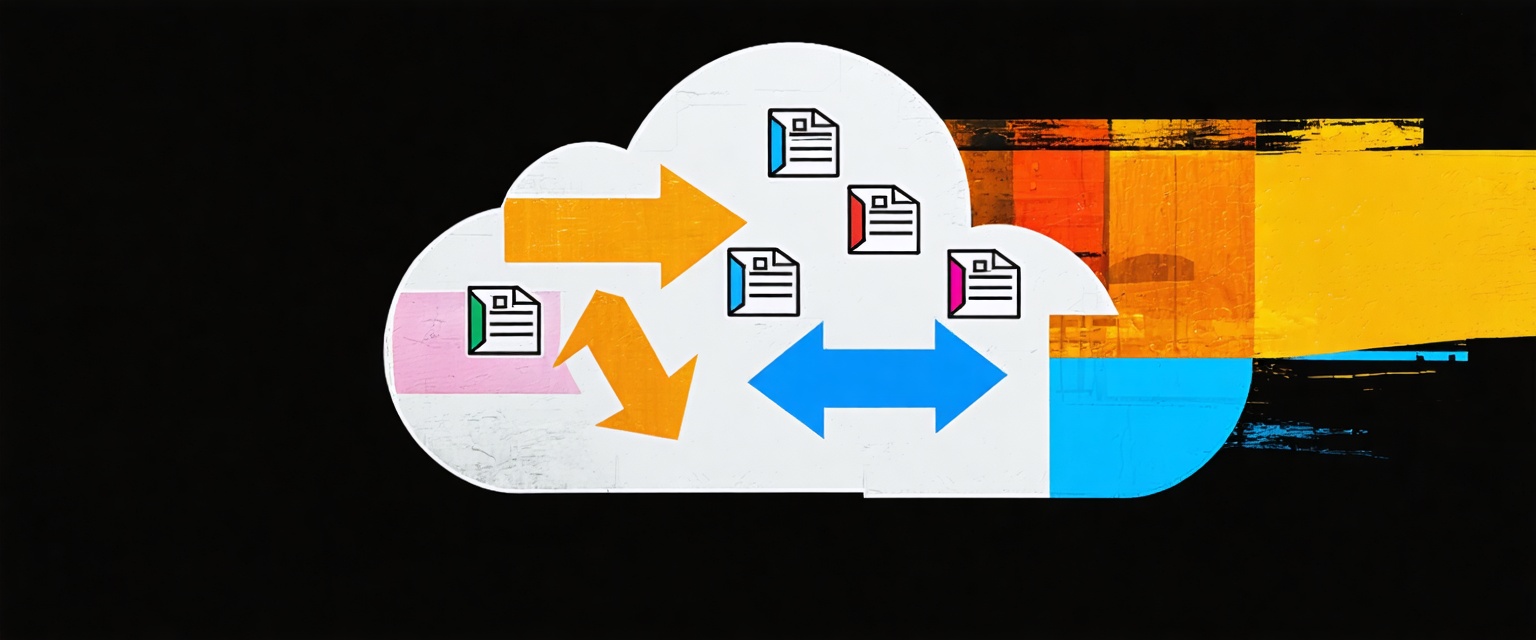Discover how AI can streamline content calendar management for marketers, boosting efficiency and creativity by automating routine tasks and data-driven insights.
Content marketers everywhere face this critical challenge, the overwhelming complexity of managing content calendars across platforms leads to missed opportunities, inconsistent messaging, and creative burnout. While you should be focusing on creating compelling content, you're instead trapped in a cycle of administrative chaos.
The good news? Discover how AI agents automate content calendar management for content marketers by automating these tedious processes and letting creative people do what they do best: Datagrid's data connectors are specifically designed to eliminate this content calendar nightmare once and for all.
What is Content Calendar Management for Content Marketers
Content calendar management serves as the backbone of successful content marketing strategies. It encompasses planning, organizing, and scheduling content across platforms to ensure consistent and effective messaging. For content marketers, a well-managed calendar functions as the strategic roadmap that keeps content flowing to the right audiences at the right times.
- Content Planning: Brainstorming ideas, researching topics, and aligning content with marketing goals and audience needs.
- Scheduling: Determining optimal publishing times across different channels to maximize reach and engagement.
- Resource Allocation: Assigning tasks to team members and ensuring necessary resources are available for content creation and distribution.
- Consistency Tracking: Monitoring publication regularity to maintain audience engagement and brand presence.
- Performance Analysis: Evaluating published content effectiveness and refining future strategies based on results.
With so many types of content to keep track of like blog articles, playbooks, social media posts, webinars, event content, and more, understanding how everything fits together... isn't an easy task.
A social media content calendar is essential for anyone working in social media or building a brand... By blocking out time to plan in advance, you'll save tons of content creating (and caption writing) hours in the long-run.
Why Content Calendar Management is Crucial for Content Marketers
In today's digital landscape, content calendar management isn't just an organizational tool, it's a strategic necessity. Here's why mastering this skill is essential for content marketing success:
Maintains Consistency and Brand Voice
A well-managed content calendar ensures your brand maintains consistent voice and messaging across all platforms. By planning and organizing content in advance, you can verify that each piece aligns with brand guidelines and contributes to a cohesive brand narrative.
Improves Team Collaboration and Efficiency
Content creation typically involves writers, designers, editors, and social media managers working in concert. A content calendar serves as the central collaboration hub, reducing miscommunication and streamlining workflows.
Planning in advance helps teams coordinate efforts and reduce redundant work, and tools that automate content briefs can further enhance efficiency.
Enhances Strategic Planning and Goal Alignment
With a comprehensive view of your content strategy, you can better align content with broader marketing objectives. This allows you to plan themed content around product launches, industry events, or seasonal trends, ensuring your content directly supports business goals.
Optimizes Resource Allocation
Planning content in advance helps prevent resource bottlenecks by allowing you to assign tasks and budget for production needs before deadlines loom. This foresight prevents last-minute rushes and helps maintain consistent content quality.
Facilitates Content Repurposing and Cross-Platform Strategy
An organized content calendar makes it easier to identify opportunities for content repurposing across different platforms. This maximizes each content piece's value while ensuring consistent messaging across channels.
Improves Content Performance and ROI
A strategic approach to content planning enables better performance tracking and data-driven decision-making. it's easy to lose track of key dates or miss strategic opportunities to repurpose high-performing content.
Ensures Consistent Posting and Audience Engagement
Consistency builds audience expectations and loyalty. Consistency is the name of the game in 2025, and having a content calendar will help keep you on track. Regular posting maintains audience engagement and helps build a loyal following.
Reduces Stress and Improves Work-Life Balance
Last-minute content creation creates unnecessary pressure and often produces subpar results. Planning ahead with a content calendar distributes workload more evenly, improving both content quality and team well-being.
As content demands grow increasingly complex, mastering content calendar management becomes even more crucial for staying competitive and engaging audiences effectively.
Common Manual Challenges in Content Calendar Management for Content Marketers
Let's face it, traditional content calendar management is a minefield of frustrations that can derail even the most brilliant content strategies:
Lack of Visibility and Clarity
When your content spans blogs, webinars, social media, and events, seeing the big picture becomes nearly impossible. Organizations struggle tracking what's been published versus what's in development. This creates:
- Duplicated efforts
- Missed deadlines
- Content gaps
- Misaligned campaigns
Separate tools and isolated teams make achieving a unified content view feel like solving a puzzle with missing pieces.
Content Chaos and Complex Coordination
The explosion of content channels has created what experts call "content chaos." This makes it tough to:
- Keep messaging consistent across platforms
- Track multiple content assets simultaneously
- Manage handoffs between team members
Teams fight an uphill battle to maintain brand consistency while keeping workflows running smoothly.
Manual Processes and Inefficient Workflows
Traditional calendar management still relies heavily on spreadsheet tracking and endless email threads. Later notes these manual processes are:
- Time-consuming
- Error-prone
- Ineffective for scaling content production
Scheduling posts across multiple time zones becomes particularly tedious without automation like trying to conduct an orchestra while also playing every instrument.
Inconsistent Scheduling and Missed Opportunities
Without robust tools, content teams often struggle to:
- Track key dates
- Repurpose high-performing content
- Maintain regular posting schedules
Limited bandwidth and lack of automation make consistency difficult to achieve, despite being crucial for audience engagement.
Measurement and Optimization Difficulties
When content calendars exist separately from analytics tools, assessing what works becomes guesswork. This disconnect creates:
- Siloed insights
- Difficulty optimizing future content based on performance
- Slow adaptation to audience preference shifts
Cross-Departmental Disconnects
Marketing, sales, product, and other departments frequently operate with independent planning systems, resulting in:
- Misaligned messaging
- Inconsistent campaign execution
- Missed collaboration opportunities
These challenges collectively hobble productivity and limit content marketing effectiveness, precisely what modern AI solutions aim to fix. For more details on how AI agents address these issues, refer to our guide to AI agents.
How AI Agents Automate Content Calendar Management for Content Marketers
AI agents have turned content calendar management from a never-ending chore into a strategic advantage for content marketers. These smart systems, encompassing various AI agent types, handle tasks that used to consume hours of your marketing team's time.
Unified and Intelligent Planning
AI tools create a single hub that automatically pulls content ideas, deadlines, and assets from multiple platforms. This gives content marketers one real-time calendar view, ending the frustration of juggling different tools and information sources.
These systems can read briefs, suggest the best publish dates, and flag when campaigns might overlap, creating a more coherent content strategy across all channels.
Automated Scheduling and Optimization
AI agents determine optimal posting times based on audience activity patterns, time zones, and historical performance, enhancing your scheduling with AI. This positions your content for maximum engagement.
AI agents also streamline task scheduling with AI, identifying high-performing content and suggesting repurposing opportunities across channels, maximizing value without manual analysis.
Streamlining Workflows and Reducing Manual Work
AI agents take over routine tasks so your content team can focus on creativity rather than coordination. Automated task assignment and reminders cut down on back-and-forth communication, making the entire content production process smoother.
When plans change suddenly, AI-driven workflow tools adapt instantly, moving posts or reassigning resources based on campaign needs giving you flexibility that manual systems can't match.
Consistency and Scalability
Keeping your brand voice consistent across multiple platforms is tough. AI helps by flagging content that doesn't match your brand guidelines before it goes live. This makes scaling up your content production much easier as AI handles repetitive tasks across various platforms and markets.
Data-Driven Insights and Continuous Improvement
AI tools connect with analytics platforms to provide real-time performance feedback, generate reports, and suggest campaign adjustments through campaign report analysis. This data-driven approach helps content teams make better decisions faster.
AI can even predict which content topics or formats might drive more engagement, helping teams stay ahead of what their audience wants next.
Content marketers can overcome traditional headaches like visibility gaps, content chaos, and inefficient workflows by using AI agents for content calendar management. The outcome? A smarter, data-informed approach to content marketing that delivers better results while freeing creative professionals to focus on crafting content people actually want to read.
Datagrid for Marketing Professionals
Marketing teams swim in oceans of data daily like customer information, campaign analytics, and content across multiple platforms. Datagrid's AI-powered platform offers specialized solutions that transform how marketing professionals work:
Customer Data Integration
Datagrid pulls customer information from everywhere like CRMs, email platforms, social media, website analytics, creating complete customer profiles that power truly personalized marketing. This ends the fragmented understanding that comes from scattered data.
Content Performance Analysis
Analyzing content effectiveness manually can take weeks. Datagrid processes thousands of content pieces automatically to extract engagement metrics, audience response patterns, and topic effectiveness, showing you what actually resonates with your audience in hours instead of days.
Competitive Intelligence Automation
Stay a step ahead with AI agents that continuously watch competitors' websites, social channels, and marketing materials. Datagrid delivers insights about their positioning, messaging, and campaign strategies without the tedious manual research you'd normally need.
Campaign Optimization
See campaign performance data across channels to identify what's working best which segments, messages, and conversion paths are getting results. This lets marketing teams fine-tune campaigns in real-time rather than waiting until they're over to learn what worked.
SEO Content Enhancement
Discover keywords, topic clusters, and semantic relationships from top-performing content in your industry. Datagrid generates practical recommendations for content creation and optimization, making your SEO strategy more targeted and effective.
Marketing Asset Management
Organize and tag thousands of marketing assets (images, videos, copy) based on content, campaign, performance, and audience relevance. This makes finding exactly what you need instant, eliminating hours spent hunting through files.
Audience Sentiment Analysis
Process customer reviews, social comments, and survey responses to spot sentiment trends, shifts in brand perception, and emerging customer needs. This automatic analysis highlights issues before they become serious problems.
With Datagrid, your creative and strategic professionals can focus on campaign innovation and customer engagement while AI handles the data-heavy analysis that typically eats up valuable creative time and energy.
Simplify Marketing Tasks with Datagrid's Agentic AI
Don't let data complexity slow down your team. Datagrid's AI-powered platform helps marketing teams who want to:
- Automate tedious data tasks: Let AI handle the boring stuff so your team can work on what matters.
- Reduce manual processing time: Cut hours from your workflow with automated data management and analysis.
- Gain actionable insights instantly: Get real-time data analysis that helps you make smarter marketing decisions.
- Improve team productivity: Free your creative talent from spreadsheet hell to focus on their actual strengths.
See how Datagrid can help you streamline processes and transform your marketing operations.
Create a free Datagrid account today













